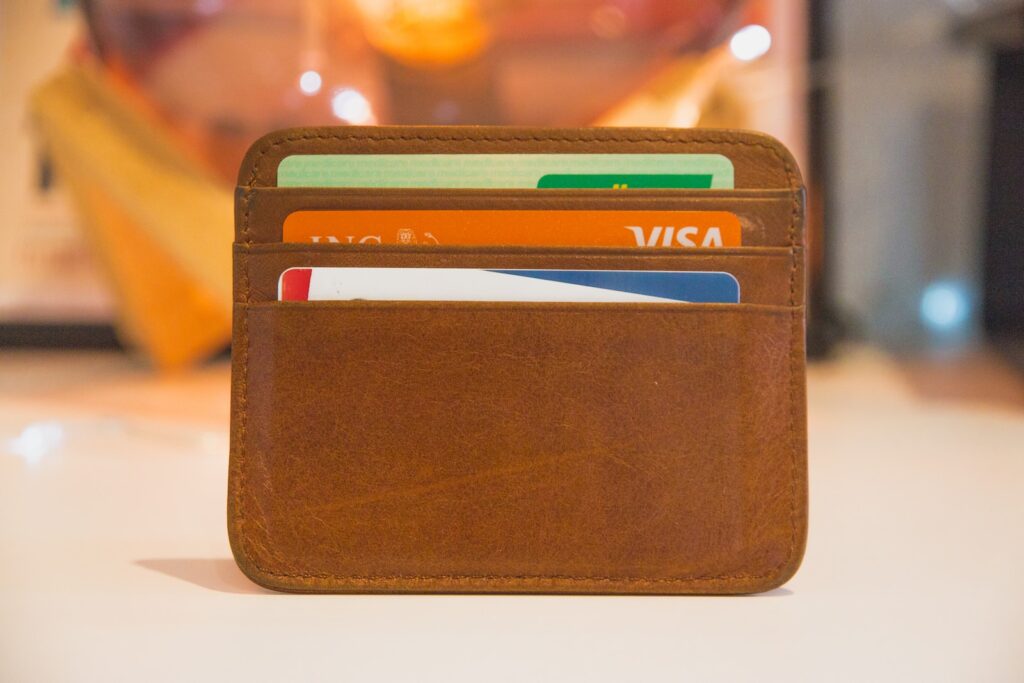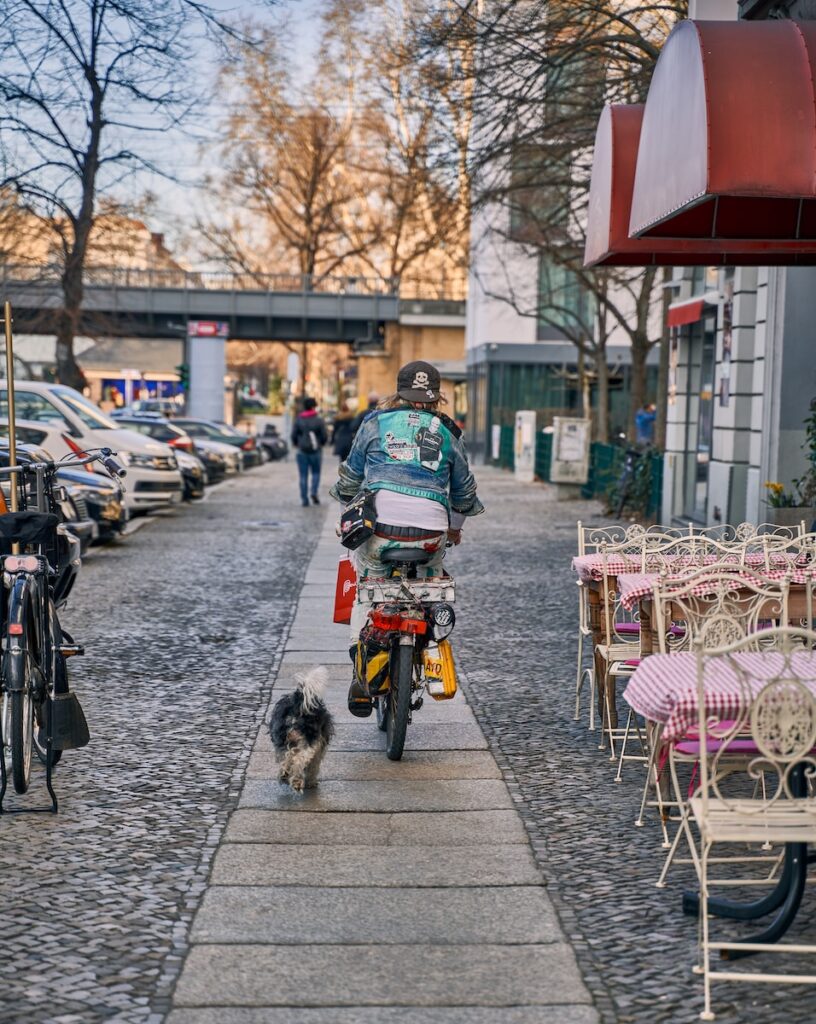Culture Shocks for New Expats in Germany
Coming up in this guide: turning up on time, homes with no kitchens, and endless packs of bicycles.
When you move anywhere, you need to adjust.
And so when you move to Germany (which, since you’re reading this, we can only assume you are), you’ll need to adjust. To people, and places, and how things work, and what to expect in your brand-new home.
So in this guide, your relocation-loving friends at Homelike have brought you a list of potential culture shocks in Germany. Expect information on taxes, tap water, knowing how people behave, and weird little quirks you probably never expected.
A quick note before we get started: of course, the different culture shocks you’ll experience will vary, depending on where you’re from. Some things that feel surprising to you might feel pretty normal to people from other parts of the planet.
Anyway, on we go: here are 17 culture shocks you can expect from Germany. Auf geht’s!
Sundays are Veeerrry Quiet…
For most people, this is one of the biggest culture shocks in Germany.
Across most nations, mundane daily tasks are possible on Sundays…
… but that isn’t really the case in Germany. That’s because of the ‘Ladenschlussgesetz’ (or ‘closing time law,’ if you don’t speak German).
The Ladenschlussgesetz was put into practice in 1956, and hasn’t changed much since. Because of the law, here’s how things work on Sundays in Germany: most stores are closed, lots of people stay at home, and you can’t do noisy domestic chores.
So you won’t be doing much shopping, and you won’t be doing residential tasks. But many other venues are still open, including museums, theaters, swimming pools, gyms, tourist attractions, and most restaurants.
Note: of course, different places offer different atmospheres. While some little Bavarian village is gonna feel very quiet on a Sunday, somewhere like Berlin still has a reasonable amount of activity.
… and Some Other Hours are Similarly Silent
Similar to the above, Germany has other designated quiet periods.
Although other quiet times vary from place to place, you can usually expect these hours to fall between 10pm and 7am (or 6am) every day—and for the entire day on public holidays and Sundays. Some more rural (or traditional) places even have quiet lunchtime hours… but it’s pretty unlikely you’ll find yourself in a place with those old-school restrictions.
You’ll find a massive (and massively surprising) number of things are not permitted during these quiet periods. Examples include stuff you’d expect (like partying and playing loud music), and stuff you wouldn’t (like hammering, using leaf blowers, and any domestic work requiring equipment or tools).
If you don’t respect these times, you might get into arguments with neighbors. If those neighbors are really pedantic (or if you’re being really unjustifiably noisy), they might call the police, which can result in fines of up to a few thousand Euros. Ouch.

Many Homes Have No Kitchens…
One of the weirdest culture shocks in Germany, by a pretty long way.
Sometimes, you’ll go to view an apartment. And it seems pretty appealing:
It’s affordable. It’s in a nice location. The bathroom is clean and modern. You have lots of natural light.
But after wandering around the place, you realize it has no kitchen. Anywhere. No oven, no microwave, no fridge, no nothing.
And so you’re left with having to buy all your own kitchen appliances, and create your own little kitchen. This weird quirk is mainly because German people often rent long-term; and by long-term, we mean very-long-term (think many years, or even decades).
Luckily, there are ways to solve this problem: when you’re hunting for a place to live, you can explicitly ask landlords if they have a kitchen. You can also ask agents to search on your behalf, and tell them you only want places with kitchens. Or, you can cut out all the stress and fuss entirely, by moving into a fully-furnished apartment or flat. And if you move into a fully-furnished place, you can be absolutely sure you’ll have a fully-equipped kitchen.
(Note: in Berlin, things are slightly different. All rental apartments must have a small kitchen. But this small kitchen is often pretty basic, offering little more than a sink and two stoves)
… and Some Apartments Have No Furniture at All
Again, because lots of people rent long-term in Germany, some apartments come completely unfurnished.
That means no appliances, no sofa, no tables, no chairs, nothing useful at all.
Again, you can avoid this by exclusively hunting for furnished places when you’re contacting landlords and agents… or you can move into a fully-furnished serviced apartment or serviced flat. You don’t want to spend your first few days in Germany hunting for furniture.
For more on finding a good place to live, here are some expert expat tips on renting in Germany.
Some Places (Still) Don’t Accept Cards
Okay, this has changed a lot since Covid.
But some businesses don’t accept card payments—and many others only accept card payments of a minimum spend.
So, just to be safe, it’s best to carry some cash.

There’s LOTS of Bureaucracy
You’ve probably heard the cliches: Germans love bureaucracy.
And if you’re from a laid-back place with free and easy rules, this might be one of the biggest culture shocks in Germany.
You’ll potentially need to go through many processes. Your visa. Your anmeldung. Your schufa.
And during these processes, you can expect lots of paperwork, lots of queuing, and lots of questions. Everything needs to be documented and reported, and it often takes a long while. And because you’re a non-native (who presumably doesn’t yet speak the local language), it can be even tougher.
… and things like moving house, getting a job, and opening a bank account can be more time-consuming than people expect.
Yes, it’s all a little frustrating sometimes, but it’s just the way things work here. And at least there’s a perk of all the bureaucracy and organization: things work in Germany, and they work well. Once you’ve got the bulk of the paperwork done, you’ll be able to enjoy the benefits
People Can Seem Rude…
Just to be clear here, German people aren’t rude. But, on a superficial level, they can seem quite restrained, or unemotional, or even maybe unfriendly.
And with strangers, German people (at first, anyway) can seem a little distant.
But you’ll soon realize that this is all just cultural stuff, and it’s a thin shell. When you get to know German people, you’ll quickly realize they’re often warm, funny, and friendly.
German people also have a direct way of communicating, which can be a little jarring at first. Often, people will say things as they are, without trying to be overly polite, or talk around the situation. Again, it’s just a cultural way of communicating, and you shouldn’t mistake it for rudeness or harshness.
… and Customer Service Can Appear Unfriendly
Again, if you’re from a place with an outwardly-cheery culture, German interactions can seem strange at first…
… and for some people, the apparent lack of ‘customer service’ can be one of the biggest culture shocks in Germany.
In restaurants, cafes, bureaucratic buildings, doctors’ offices (basically, in any place where you’re interacting with someone who’s ‘serving’ you), people prioritize function over friendliness. Sometimes, this can be interpreted as rudeness… but, really, these people are just trying to get their jobs done without any excess fuss or frills.
On one hand, this can make every interaction appear a bit transactional (which, let’s be honest, is exactly what it is). But on the other, it makes everything much more smooth and efficient. You win some, you lose some.
Everyone is Punctual
Depending on where you’re from, this can be one of the biggest culture shocks in Germany.
If you’re from another punctual place, like the UK or Japan, this isn’t such a big issue. But if you’re from a place with a laid-back attitude to time, Germany’s punctuality can take some getting used to.
If people are meeting at 11am, they mean 11am. Not 11:10, or 11:15, or 11:07. Some people even arrive a little early, to make sure they’re not late.
Being late is considered rude and disrespectful—and timings aren’t a guideline, they’re a rule. This is (of course) how things work in business and school, and for other official exchanges. But it’s also how social interactions function.

There are Two(!) Types of Rent
Admittedly, this isn’t gonna give you much culture shock. But it’s definitely something you need to be aware of.
German properties sometimes offer two types of rent: warm rent and cold rent (also known as ‘Warmmiete’ and ‘Kaltmiete’).
In short, Kaltmiete (cold rent) is simply the fee you pay for an apartment, and it covers zero other perks. Warmmiete (warm rent) has extra benefits—it always includes rent, and it also includes other costs. These costs may include heating, electricity, recycling, trash collection, and property tax—but the exact details vary from place to place.
Some landlords (and properties) only offer cold rent. Some only offer warm rent. Some offer both. It’s always best to ask exactly what you’re getting, because it’s not always clear.
Or if you’re overwhelmed by the whole thing, you can get around the situation by moving into a place where all costs are always covered—like an Airbnb, or a serviced apartment or serviced flat.
Recycling is Very Big
Most European nations place a big focus on recycling. But Germany is one of the world’s most eco-friendly countries, and it places a bigger emphasis than most. In fact, Germany has the highest recycling rate in the world at 66%.
The vast majority of materials can be recycled, and you can be fined if you don’t follow the rules. There are even deposit-based refund schemes in Germany, where you get small financial rewards for returning some recyclables.
All these schemes and processes are slightly different, depending on which city you’ll be living in. But to give you an idea of what you can expect, here’s a detailed guide to recycling in Berlin.
You’ll See Bicycles Everywhere
If you’ll be regularly driving a car, this can be one of the biggest culture shocks in Germany.
Germany has one of the biggest cycling cultures on the planet. The nation is home to around 62 million bicycles—which is 0.75 bicycles per person.
And almost 10% of people in Germany use a bicycle every day (or almost every day).
If you like cycling, this can be one of the biggest perks of living in the nation. You get great infrastructure, lots of places to buy and repair bicycles, hobby groups, loads of cyclists, cyclable cities, and lots of space and respect from drivers and pedestrians.
But for car drivers who’ve never lived in a cycling-nation before, it can take a few weeks to adapt. But the infrastructure all works well, and you’ll soon learn how to navigate and negotiate it.

It’s Clean!
According to this research, Germany was the world’s 10th-cleanest country in 2020.
And when you reach the nation, you’ll see why it ranks so high.
… the vast majority of places are clean, organized and tidy (that’s especially true for towns and villages, but it’s also largely true even for the biggest cities), most areas feel very family-friendly, outdoor areas are heavily respected, and you’ll find very little trash (no matter which parts of the nation you’re exploring).
The Internet isn’t as Good as You Might Expect
Okay, to be clear here, Germany’s internet isn’t as bad as some people like to pretend.
But for such a modern and developed country, it’s not as good as it should be.
Exactly where Germany ranks among global internet speeds depends on who you ask—but according to this 2023 analysis, the nation sits 41st in the world (and beneath most of the planet’s other big-hitters).
According to that same link, the nation’s average internet speed sits at 153.77 Mbps. And on top of that, you’ll also find that internet data coverage is pretty unreliable in some areas, especially when you get really rural.
Things are changing—but if you’re from another part of Europe (or some parts of eastern Asia), you might be surprised by the relatively-poor internet access (and effectiveness) here.
You’ll (Usually) Pay for Water in Restaurants
Hardly the biggest of all the culture shocks in Germany, but one that gets repeatedly commented upon.
In many countries, restaurant table water is free. In Germany, it usually isn’t.
Yep, you can ask for “Leitungswasser” (which translates to ‘tap water’); but you might be refused it, and you might be charged for it. Most Germans, when they want water in a restaurant, pay for the stuff instead (whether it’s still or sparkling).
Income Tax is Very High
Most newcomers are surprised by Germany’s high rates of income tax.
In 2021, the average German salary (before taxes) sat at €4,100 per month (that’s €49,200 per year). Using this German income tax calculator, you can work out how that income (or any income) would be taxed.
… and on an annual income of €50,000, you would keep €31,780. The other 36% would go towards your pension, and various taxes and insurances (all of which are mandatory costs).
Some higher earners give almost 50% of their income back to the state. The no-tax bracket sits at a maximum of only €10,908—and even the lowest earners have to pay for both health insurance and their public pension.
On the plus side of this, all the tax is paid forward to all the perks you get (like the cleanliness, the good infrastructure, the top-quality healthcare and education, and all the other sweet sides of living in Germany). So it’s pricey, but it’s worth it.
Abruptness, Pace, and Personal Space
Last up, a bunch of little things you might notice; none of them terrible, and all of them easy to adapt to.
People in Germany can seem a little abrupt at times: queueing isn’t organized, people barge past one another when getting on and off public transport, and aspects of personal space can sometimes go ignored.
Of course, this is really only the case in bigger (and busier) cities…
… and this might give you the inaccurate idea that German people don’t respect the privacy and personal space of others. But if you stand your ground and be assertive (not aggressive), you’ll find the ‘rudeness’ is usually just rushing. In big cities around the world, everyone is always in a hurry.
Culture Shocks in Germany: Final Thoughts
Alright, that’s us done here—they’re the most common culture shocks in Germany.
Some are easy to adapt to, some are a little tougher, but you’ll get used to them all in time.
As we’ve mentioned, some of the trickiest barriers are often related to finding a nice apartment. Some of the rental processes are confusing, the furnished-or-not-furnished system is frustrating, and many of the better properties are snapped up quickly by German natives (who, unlike you, have local contacts, and are more accustomed to how things work).
… so to avoid any fuss and hassle, you can make things easier by moving into a serviced apartment or a serviced flat. All of ours are comfortable and cozy, fully-furnished, perfect for working and living in, and ready to move into today. Looking for a quick-solution home? You’ve found it!
For more on relocating to the nation, here are 14 things you need to know about living in Germany. And for information on specific cities, here are the best neighborhoods in Berlin, Dusseldorf, and Munich.
Thanks for reading, thanks for visiting Homelike, and enjoy your new life in Germany. Auf Wiedersehen!























